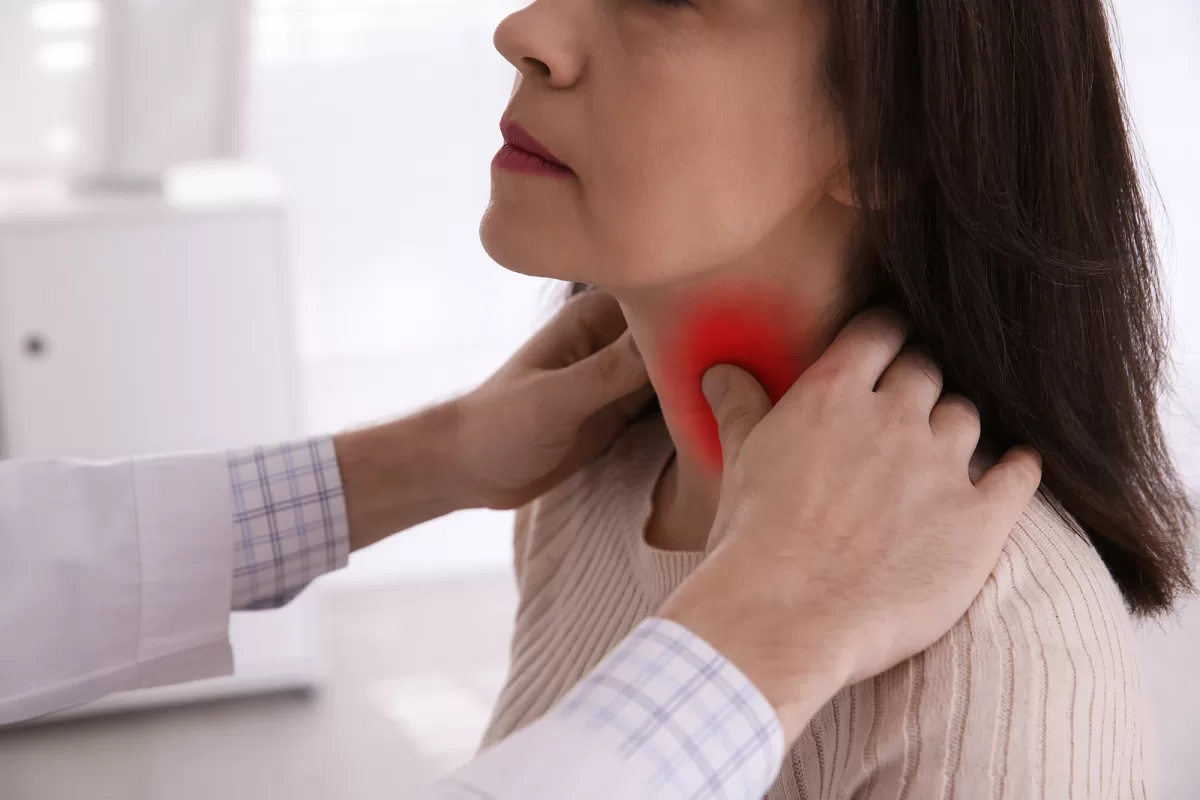May 25th is recognized as World Thyroid Day by the American Thyroid Association (ATA), and all week the association has been promoting awareness of thyroid diseases. World Thyroid Day is intended to increase awareness of thyroid health, promote understanding of advances in treatments for thyroid disease, and emphasize the prevalence of thyroid diseases. Thyroid disorders are eight times more likely to occur in women than in men. As a pharmacy that serves many women in menopause with hormone treatments, we thought it was important that we participate in World Thyroid Day by examining a common problem in thyroid disorder diagnosis in women. When you are experiencing symptoms of menopause – are they related to declining hormone production or a thyroid condition?
What is the Thyroid?
The thyroid gland is an endocrine gland located at the front of your neck. It produces thyroid hormones which regulate metabolism. This does not mean it just influences your digestive system. These hormones are essential throughout the body for regulating how the body uses energy. Thyroid hormones affect the reproductive system, the cardiovascular system, hormone balance, digestion, appetite, and many other biological systems.
Thyroid Symptoms vs. Menopause Symptoms
It is possible that for some women, menopausal symptoms are confused with thyroid disorder symptoms. The systems associated with changes in estrogen production and those associated with thyroid production can both be affected by menopause. This makes it difficult at times to understand which one is more responsible for symptoms. This does not mean that a woman cannot experience symptoms of hormone changes in both systems. There may be a combination of menopause or peri-menopause and thyroid disorder.
Symptoms of a thyroid disorder can vary depending on the condition and the patient. They may include moodiness or irritability, difficulty sleeping, hot flashes, muscle or joint pain, hair loss, weight gain or weight loss, and irregular menstrual periods. These could also be symptoms described by a woman experiencing menopause.
How Can You Tell the Difference?
Fortunately, diagnosing a thyroid disorder is actually simple. Your doctor can perform a physical exam and take a blood test to check your hormone levels. If the results show abnormal levels of thyroid stimulating hormone (TSH), then there is a good chance there is a type of thyroid disorder. Because the reproductive system and the thyroid system are connected, a change in the production of hormones in the ovaries can affect the production of hormones like T4 and T3. This means that it is possible both systems are affected and will affect each other. Hypothyroidism, for example, can make menopause symptoms worse. The only way to determine the cause of symptoms is to schedule an appointment with your healthcare provider.
TSH Testing
Thyroid-stimulating hormone (TSH) levels can be monitored with a blood test. TSH signals to the body that thyroid hormones need to be produced. If there is an abnormally high TSH level, therefore, it indicates that you may have hypothyroidism. A low TSH level may mean the thyroid gland is overproducing thyroid hormone. Further tests may be conducted to understand better the TSH results, such as a total T4 test or a thyroid antibody test.
When Thyroid Disorders are Diagnosed
The timing of the diagnosis for many women with thyroid disorders also aligns with peri-menopause. Between the ages of 45-55, women are likely to have entered peri-menopause and are at the most common age to be diagnosed with a thyroid condition. It is possible that a thyroid condition can lead to early onset menopause (when it starts in the late 30s or early 40s).
It is estimated that over 20 million Americans may have a thyroid disorder, but these conditions sometimes get misdiagnosed. Because the symptoms are common, they may be ignored or assumed to be due to age. If a patient does not seek treatment and goes undiagnosed, they may miss out on an opportunity to alleviate symptoms that can be treated with hormone replacement therapy.

